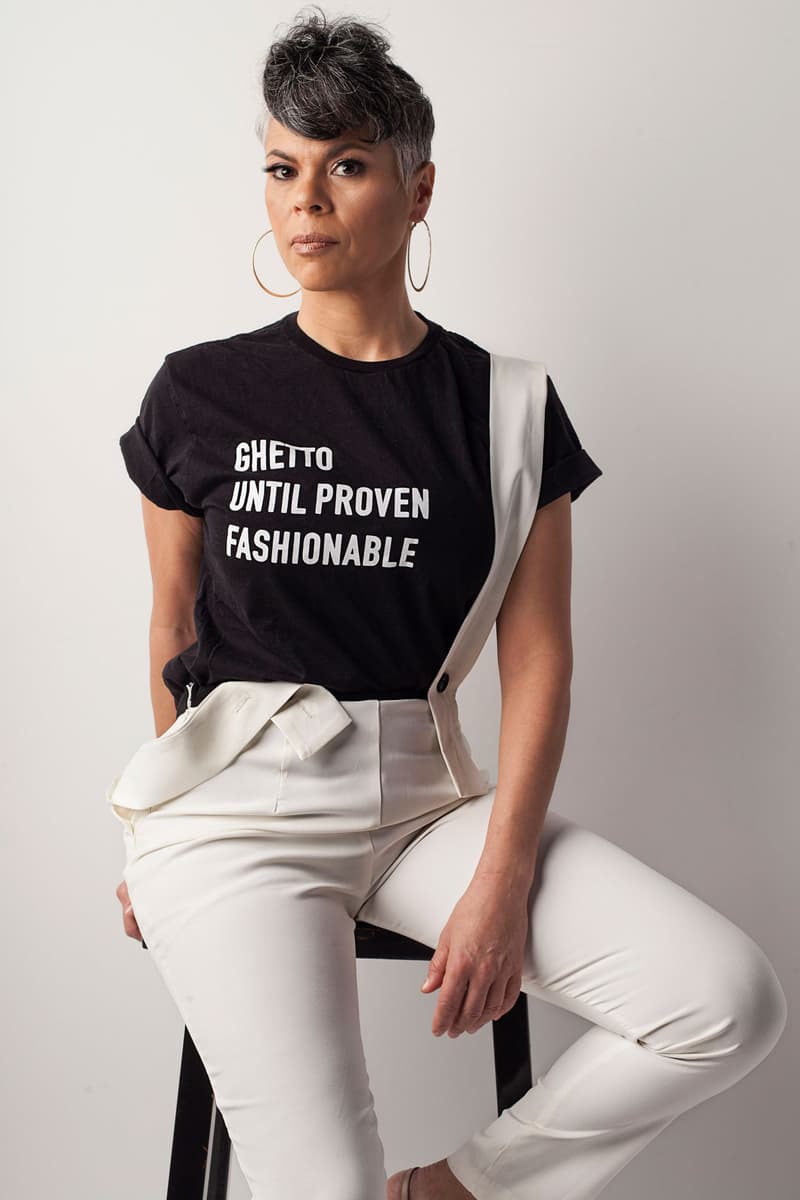When we talk about streetwear, the conversation often centers around men and the male-dominated brands that built the culture. But women have been there from the very start—designing, creating, and styling their way into history while redefining what streetwear looks like.
The streetwear genre has always been painted as a boys’ club—but let’s be real, women have been running things from the very beginning. They weren’t just in the room, they were setting the tone, building the culture, and flipping the script on what streetwear could be.
Below, we’re spotlighting some of the most influential women in streetwear who continue to shape the scene. These women didn’t just participate; they changed the rules, built empires, and inspired a new generation of girls to step boldly into the culture. They weren’t just part of the movement. They changed the game.

April Walker – The Pioneer
Before streetwear was a billion-dollar industry, April Walker was in Brooklyn making it happen with Walker Wear in the early ’90s. Her brand was worn by icons like Tupac, Biggie, and LL Cool J, cementing her as one of the first women to break through in a male-heavy space. Her Brand made its way into hip-hop history. Walker didn’t wait for permission—she created her own lane and proved that women could lead in streetwear, not just consume it.
Why She Changed the Game: She opened the doors for women entrepreneurs in urban fashion and set the stage for the streetwear-meets-hip-hop connection that dominates today.

Leah McSweeney – The Rebel
In 2004, Leah McSweeney launched Married to the Mob and came straight for the boys' club. Married to the Mob was one of the first women-led streetwear brands built unapologetically for women. With bold graphics, attitude-filled slogans, and collabs with brands like Nike and Kangol, she created a lane that represented female voices loudly in a space where they were often overlooked.
Why She Changed the Game: She gave women their own seat at the streetwear table, unapologetically pushing back against male gatekeeping.

Kimora Lee Simmons – The Mogul
As the force behind Baby Phat, Kimora Lee Simmons made streetwear glamorous. At its peak in the early 2000s, Baby Phat was everywhere—blending street style, luxury, and femininity with rhinestones, velour tracksuits, and that iconic cat logo. Kimora glamorized streetwear and made it unapologetically feminine, proving “fly” could be both street and luxury.
Why She Changed the Game: Kimora proved that streetwear could be aspirational, luxurious, and feminine all at once—while building one of the most successful women-led fashion empires of her era.

Aleali May – The Disruptor
Aleali May made history as one of only two women to collaborate on Air Jordan designs, releasing sneakers that sold out instantly. With her effortless mix of tomboy edge and feminine flair, she represents the modern “It Girl” of streetwear and gave women a new lane in sneaker culture.
Why She Changed the Game: She’s one of the few women to break into sneaker design at Nike’s highest level, inspiring young women to see themselves in sneaker culture beyond just being buyers.

Kianga “Kiki” Miele – The Streetwear Insider
As the founder of Female Sneaker Fiend, Kiki created a community for women who loved sneakers during a time when the culture was heavily male-driven. Beyond sneakers, she’s been an advocate for women’s visibility in streetwear and has worked behind the scenes on big brand labels like FUBU, to give women their own platforms in the culture.
Why She Changed the Game: She built one of the first sneaker/streetwear communities by women, for women, setting the foundation for today’s female sneakerhead movement.

Vashtie Kola – The Downtown Sweetheart
Vashtie has done it all—designer, director, DJ, and influencer. Known as the “Downtown’s Sweetheart,” she was the first woman to design a Jordan sneaker back in 2010. Her ability to merge music, art, and fashion created a blueprint for what being multi-hyphenate in streetwear looks like.
Why She Changed the Game: Vashtie made it cool to be multidimensional—she showed that women in streetwear can lead behind the scenes, in front of the camera, and everywhere in between.
Streetwear is not just about hoodies, sneakers, and oversized fits—it’s a culture shaped by creativity, hustle, and identity. These women didn’t just add to the culture; they redefined it. From April Walker paving the way to Kimora Lee Simmons glamorizing the streets, to Aleali May and Yoon Ahn shaping sneaker and luxury collabs—the impact of women in streetwear runs deep.
And the story isn’t finished. The next wave of female designers, stylists, and creatives are already stepping up—reminding the world that streetwear is not just for the boys.
